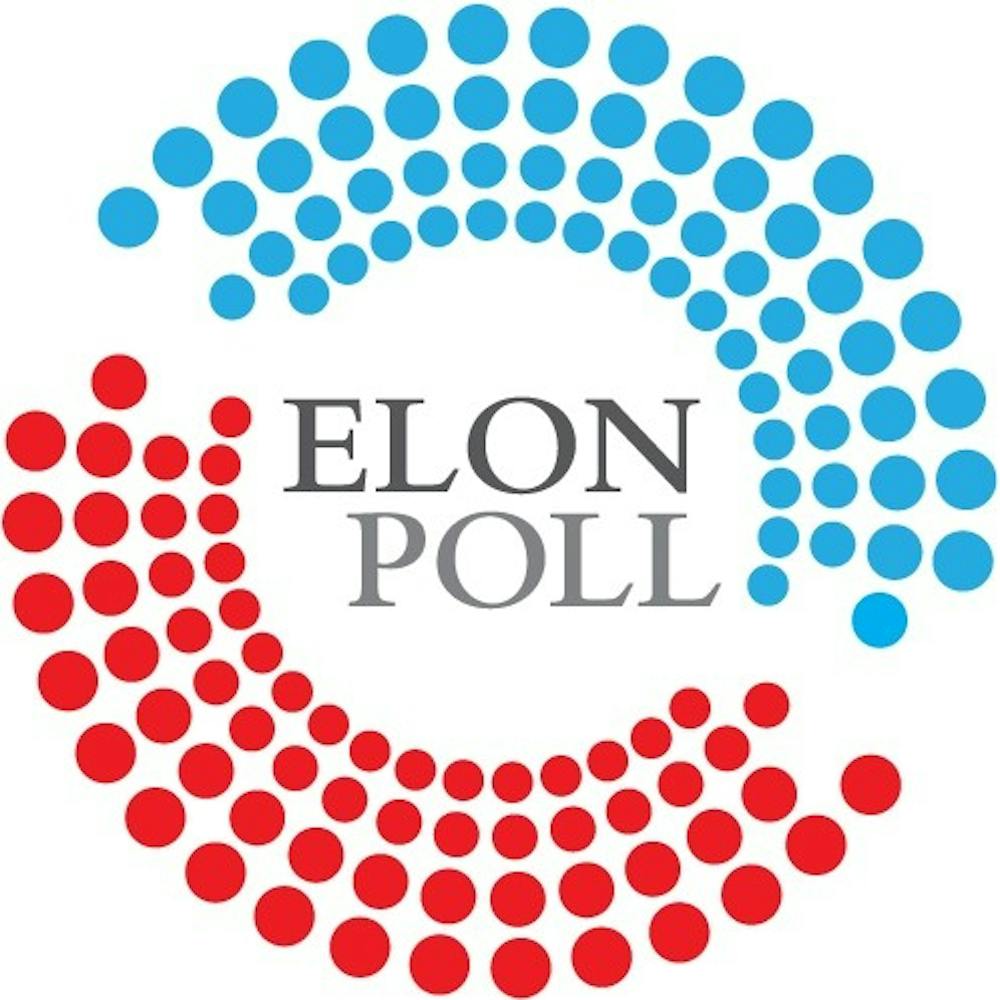CORRECTION: The original article stated that Democratic Attorney General Roy Cooper received just one percent more in the Elon Poll than incumbent Republican Gov. Pat McCrory. Cooper actually received one vote more than McCrory in the Elon Poll. Elon News Network regrets the error.
Results from the latest Elon University Poll show competitive races in North Carolina for president and governor are too close to call.
Democratic presidential nominee Hillary Clinton polled at 42 percent, while Republican Donald Trump polled at 41.2 percent. Libertarian Gary Johnson only got 2.6 percent of votes from respondents, while Green Party candidate Jill Stein garnered only 0.5 percent among those polled. About 9 percent of respondents said they were undecided, and more undecided voters leaned in Trump's favor than in Clinton's.
On Friday, FBI Director James Comey sent a letter to Congress saying the bureau is investigating more Clinton-related emails. Because the Elon Poll finished conducting its survey on Thursday, it does not reflect any swings in public opinion since the FBI announcement.
“North Carolina is still very much in play for both Trump and Clinton,” said Jason Husser, director of the Elon University Poll and assistant professor of political science and policy studies, in a statement. “The Old North State is continuing its tradition as a source of true toss-up electoral votes.”
The gubernatorial race is even closer. Democratic Attorney General Roy Cooper received just one vote more in the Elon Poll than incumbent Republican Gov. Pat McCrory. Of the 710 total respondents, 44.4 percent said they plan to vote for Cooper, while 44.3 percent said they'd vote for McCrory. There are still a lot of undecided voters up for grabs. More undecided voters surveyed said they lean toward Cooper than McCrory.
The U.S. Senate race is looking better for Republican incumbent Richard Burr. According to the poll, 43.5 percent of respondents said they'd vote for Burr compared to 39.9 percent who said they plan to support Democratic challenger Deborah Ross. Though the results fall within the margin of error of 3.7 percent, they reflect growing support for Burr within the past month. In the previous Elon Poll conducted in late September, Democratic challenger Deborah Ross led by 0.2 percent. In this Elon Poll, she trails by 3.6 percent.
“Most analysts’ early expectations were for Burr to have a comfortable lead on Ross in the U.S. Senate election in North Carolina,” Husser said. “Late September polls indicated those predictions may have been premature. However, our recent results suggest that North Carolina is leaning towards the Republican incumbent as Election Day fast approaches.”
There are still some encouraging signs for Ross, though. She polled better with undecided voters, and more than 10 percent of respondents said they don't know who they plan to vote for. Discussions to bring Ross to Elon's campus have taken place, but there has been no set time, date or location for a campaign appearance. Ross was initially scheduled to visit Elon on Saturday, but the campaign cancelled the trip.
The poll also gathered public opinion from likely North Carolina voters about the electoral system, media bias, and allegations Trump has sexually assaulted women.
A majority of respondents, 82.6 percent, said they would accept the results of the election regardless of who wins and who loses. A majority of respondents, 55.6 percent, said they believed the media is biased against Trump, while less than 20 percent said they believed the media is biased against Clinton.
In light of multiple women accusing Trump of sexual assault, 45.2 percent of respondents believe the accusations are mostly true while 36.1 percent believe they are mostly false.


